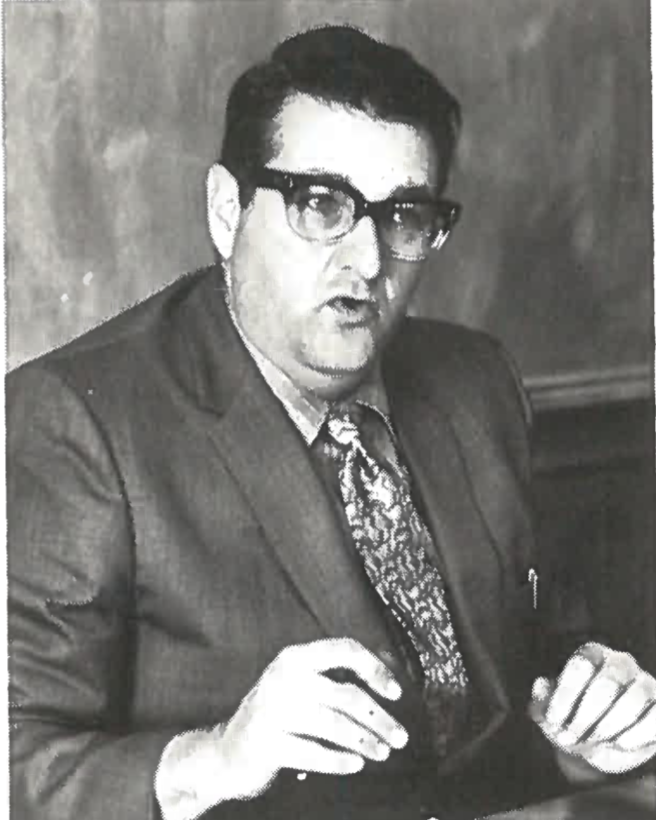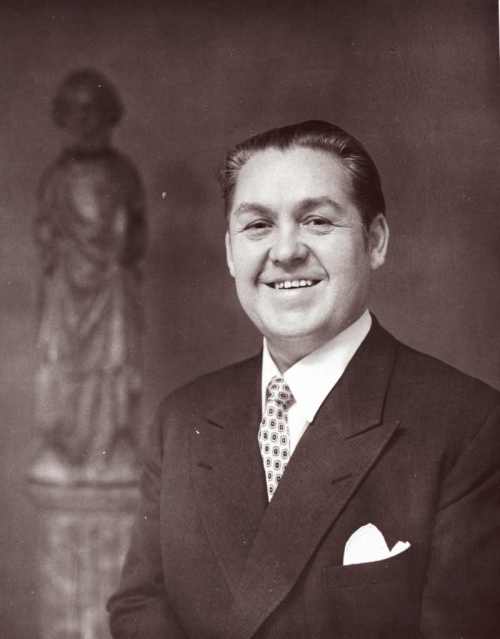|
SATURDEE OPRY LINKS 37: Hot
and Cool Edition



A. H. "Bud" Rotman
Jussi Bjorling
Franco Corelli
Saturdee Opry Links Overture!
"Marriage of Figaro," by Mozart.
https://www.youtube.com/watch?v=pb1tlh9xn38
Today's sweatbox edition of Saturdee Opry Links continues with our "hot and
cool" selections---hot tenor arias and cool sopranos. . .
1.
"Let me weep." An apt sentiment for those without air conditioning. Joyce
DiDonato with the gorgeous Handel aria from "Rinaldo." Period instruments.
Setting: a garden in Argante's palace, Jerusalem, Palestine, during the Crusades
Synopsis: Almirena has been abducted by the sorceress Armida and imprisoned in
the palace. She laments her fate.
https://www.youtube.com/watch?v=oJJnhp2CYnk
About the aria, translation:
https://www.thoughtco.com/lascia-chio-pianga-lyrics-and-text-translation-724052
2.
A tremendous piece of singing is this lament from Cilea's "Adriana Lecouvreur,"
this is "L'anima ho stanca" ("My soul is tired"), making its Saturdee Opry Links debut with Franco Corelli, live on stage in 1959.
Setting: a salon in the house of the actress Duclos, Paris, 1730
Synopsis: Maurizio Maurizio, the Count of Saxony, has met with the Princesse de
Bouillon for a secret tryst. When she asks him what the violets he has brought
are for, he replies that he brought them for her. In truth, however, they were
given to Maurizio by Adriana as a show of her love for him.
https://www.youtube.com/watch?v=vbYD5WeXvoQ
Rough translation:
L'anima ho stanca, e la meta è lontana :
non aggiungete la rampogna vana
all'ansia che m'accora.
Assai vi debbo; ah!
ma se amor cadrà memore affetto in core,
in cor mi fiorirà!
English:
My soul is tired, and the goal is far:
do not add vain rampant
to anxiety that annoys me.
I owe you so much; ah!
but if love will fall fond memory,
in heart I will flourish!
3.
Another baroque aria for a beastly day. . .Every time I hear a counter-tenor, I
think of Jonathan Winters in "It's a Mad Mad Mad Mad World," refusing to ride a
bicycle because "That's a girls' bike!" In the old days, those nice church
people used to wack the nuts off of boys so they would ride a bike, I mean sing
like girls. Today it is a cultivated voice, and is increasingly prevalent. I
figure it's due to PCB pollution mimicking hormones. Anyhow, here is a man with
a beautiful woman's voice, the counter-tenor Andreas Scholl, with what is
perhaps the most moving aria in the baroque repertory, "Ombra Mai
Fu," from Handel's "Xerxes." This is, as many of you know, an ode to a tree. How
desperately this species needs to embrace and understand the spirit of this
piece. And how desperately many of us could use a little of this today:
"Never was a shade
of any plant
dearer and more lovely,
or more sweet."
https://www.youtube.com/watch?v=N7XH-58eB8c
About the aria, translation:
https://en.wikipedia.org/wiki/Ombra_mai_fu
4.
On the opposite end of the singing spectrum from Andreas Scholl, perhaps, is,
again, the
decidedly testicular voice of Franco Corelli. Here is more thrilling Corelli
from "Adriana Lecouvreur," by Cilea, the love aria, "La dolcissima effige." Live
at the Met in 1963, making SOL debut. (Tremendous note at the 1:30 mark.)
Setting: backstage at the Comédie-Française, Paris, 1730
Synopsis: Before the show, the lovers Adriana and Maurizio meet and Maurizio
reconfirms his undying love for Adriana.
https://www.youtube.com/watch?v=igFrEjUtOcU
Translation:
https://www.translatelyrics.net/en/andrea-bocelli/la-dolcissima-effigie/21964/
5.
Two years before Mozart's first successful operatic masterpiece "Abduction from
the Seraglio," he began to write "Zaide," a German "rescue" opera that deviated
from the norm of a male hero rescuing his lady in distress, and instead told the
story of a heroine, Zaide, who rescues her lover, Gomatz. And you thought
feminism was new. . .Mozart never finished "Zaide",
and the music was not performed until long after he died. Here is the lovely
aria, "Ruhe Sanft" ("Sleep Safely"), from the opera that wasn't quite. Sung here
by the tremendous Mozart soprano, the late Lucia Popp.
https://www.youtube.com/watch?v=jSQqbJPoSbw
Translation:
Ruhe sanft, mein holdes Leben,
schlafe, bis dein Glück erwacht!
da, mein Bild will ich dir geben,
schau, wie freundlich es dir lacht:
Ihr süßen Träume, wiegt ihn ein,
und lasset seinem Wunsch am Ende
die wollustreichen Gegenstände
zu reifer Wirklichkeit gedeihn.
English:
Rest peacefully, sweet love of my life,
Sleep ’till you re-awake in happiness!
Here, I give you a picture of me,
See how lovingly it smiles at you;
Oh, let those sweet dreams cradle him,
And finally let
All sensual things he desires
Come to rich fruition.
6.
Today's sweatbox edition of Saturdee Opry Links continues with our "hot and
cool" selections---hot tenor arias and cool sopranos. Here again is the mighty
Corelli, this time with Donizetti's "Ange si pur" ("spirito gentil") from
"La Favorite." May it gentle your heat-prostrated spirit.
Setting: the monastery of St James of Compostella, Castile, Spain, circa 1340
Synopsis: Not knowing that Léonore is the "favorite" of King Alphonse, the young
novice, Fernand, asks the king for her hand in marriage---and receives it
because he has led Castile to victory in battle over the Moors. Thinking that
his bride is pure, he prepares to marry her. However, before she appears, he
finds out that she has been the lover of the King. With his heart broken, he
returns to the monastery and mourns for the betrayal of his love and the loss of
Léonore.
https://www.youtube.com/watch?v=uwFCKcNnses
Translation:
http://www.lieder.net/lieder/get_text.html?TextId=23995
7.
"Come, do not delay, bliss." Now that's a prayer I can get behind. In this case,
I'd settle for the bliss of a mere 80 degrees. Ah, but I vulgarly digress. Here
is another little drink of Mozart for you, something to cool the fevered brow. "Deh
vieni non tardar" from his comic opera, "The Marriage of Figaro," so beautifully
sung by Alison Hagley.
https://www.youtube.com/watch?time_continue=21&v=cJHlJdocmnM
Setting: The garden of Count Almaviva
Synopsis: In order to tease Figaro, who thinks Susanna is cheating on him with
the Count, Susanna---maid to the Countess of Almaviva, fiancee of Figaro---urges
the Count to come quickly to her.
Translation:
http://www.opera-arias.com/mozart/le-nozze-di-figaro/deh-vieni-non-tardar/
8.
Here is a rather legendary performance by Corelli, from 1967, which features a
spectacular diminuendo---gradual reduction of volume in a single note. (It comes
at the end.) Right, great tenors also sing softly. Here is "Ah, leve toi, soleil,"
from "Romeo and Juliet," by Gounod. (The guy you hear speaking from time to
time, is the too-loud on-stage prompter, by the way.) Aria begins around 2:45,
with the precede, "L'amour, l'amour." English subtitles. Corelli sings with such
totality of being that you'd never guess he had chronic stagefright.
Synopsis: Romeo has escaped from his companions in search of Juliet's room. He
finally spies her on her balcony and sings of her beauty which is like the sun.
The words are almost exactly translated from Shakespeare's Romeo and Juliet.
https://www.youtube.com/watch?v=t_IOsYUle_M
Translation:
http://www.aria-database.com/search.php?individualAria=560
9.
Daniela Dessi holds forth with the masterpiece of an aria (as all Mozart's
were, really), "Come Scoglio," from "Cosi fan Tutte."
Setting: the living room of Dorabella and Fiordiligi's house
Synopsis: Two mysterious Albanians (aren't they all!) that are really Guglielmo
and Ferrando in disguise have shown up at the sisters' door accompanied by Don
Alfonso. The two men attempt to woo the sisters. Fiordiligi will have nothing to
do with it, though, and, in this difficult aria, declares her loyalty to
Guglielmo and asks the strangers to stop attempting to win them.
https://www.youtube.com/watch?v=X4cCF6tN_Qs
EXTRA: Remembering beautiful Daniela Dessi, who passed away two years ago:
https://www.wqxr.org/story/remembering-italian-soprano-daniela-dessi/
FINAL BOW:
Decided to go out with something "light and bright," but not too bright, given
the temperature outside. If I call Patricia Janeckova a "doll," I am to be
forgiven such apparent crass, demeaning sexism! Why? Because she is a doll, at
least here, with the doll song from "The Tales of Hoffmann," by Offenbach.
https://www.youtube.com/watch?v=mVUpKIFHqZk
Setting: The parlor room of Spalanzani the scientist, 19th century
Synopsis: Spalanzani the inventor winds up Olympia the doll to sing for his
guests. She sings this song about the birds and how they sing of the young girl
of love.
Translation:
http://www.aria-database.com/search.php?individualAria=364
Saturdee Opry Links ENCORE!
Very often, "O Sole Mio" is the encore here, with its grand opening line, "What
a wonderful thing is a sunny day." But today is not so grand, owing to the
punishing heat. What's more, the sun had a lot of goddamn nerve coming up at all
today, given that a great man passed away in the night. He was one of those
"great teachers" that you always hear about, laboring away heroically, in
obscurity. He taught for over 40 years---English, Shakespeare, Journalism---at
Venice High School in L.A., and yes, he brought tremendous, undying dedication
and originality to his work. Equally important, if not more, he went out of his
way to make students feel of value, to stimulate their thinking, and to
encourage. I am reminded of a friend I met a few years ago who had to drop out
due to pregnancy, and finished her high school diploma at Venice High adult
night school---where this man was her English teacher. She was embarrassed,
ashamed, depressed, distressed, and it was this teacher who revived her
spirit---treating her like a human being of substance. He did the same for
countless others, including a transfer student who was profoundly depressed and
lost, shunned at home and essentially hiding from the world. I owe him more than
I can say for supporting that kid and championing his writing---and introducing
him to the voice of Jussi Bjorling. This little gesture is in loving memory of
Mr. A.H. "Bud" Rotman, who loved the vital, titanic, life-embodying singing of Jussi,
and all good things. Here is Bjorling, live in 1944, in an astonishing, un-toppable
rendition of "Nessun Dorma." So long, Bud.
https://www.youtube.com/watch?v=xT09SI0LAjg
Summary and Translation:
http://www.aria-database.com/search.php?individualAria=318
Back to Opera Links
Back to Home Page
|



